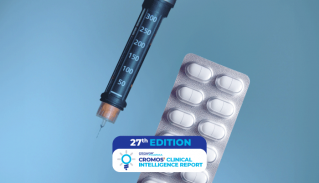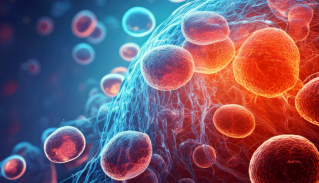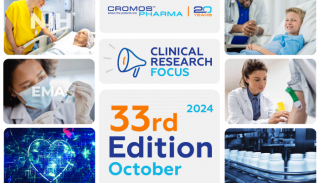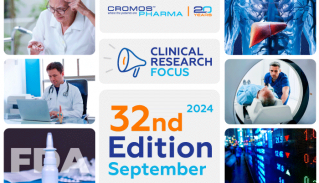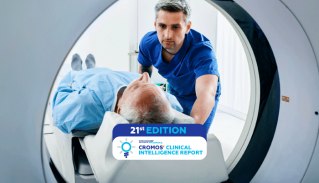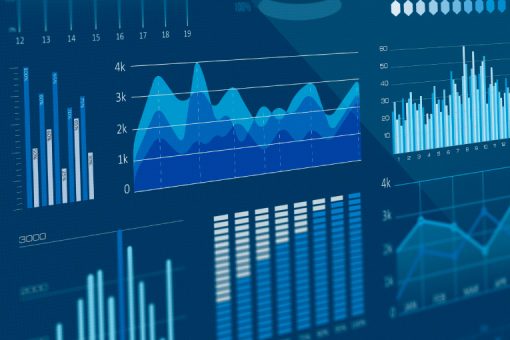
Biostatistics in Clinical Trials
There is this longstanding notion that biostatisticians are only helpful towards the latter part of a clinical study; that is a complete fallacy. The role that biostatistics play in medical research spans the entire process: from building study designs to data analysis.
Given the huge responsibility shouldered by biostatistics in clinical trials, it is essential for organizations involved in medical research to understand the importance of this field. This article gives a cursory glance at biostatistics for those involved in clinical research.
Biostatistics Basics
When we talk about statistics, words that come to mind usually include data analysis, averages, population, and the like. Morph biology into the equation and biostatistics will emerge as the birthchild of those two fields.
Definition of Biostatistics
According to Lisa Sullivan from the Boston University School of Public Health, “biostatistics is the application of statistical principles to questions and problems in medicine, public health or biology”. This definition encapsulates the idea of biostatistics being a field that overlaps with other fields.
A more humanized definition was given by two American biostatisticians, Vance Berger and J. Rosser Matthews. They define their discipline as a guide to, “how we ought to make decisions when analyzing biomedical data”.
For them, numbers are not the most important part of biostatistics, but rather the decisions that are made using those numbers.
Population, Sample Size, and Other Important Terms
When discussing biostatistics, one will encounter some recurring terminologies. Here are some keywords in the biostatistics vernacular:
- Population: the entire group studied (e.g., every male in Germany)
- Sample: a subgroup from the population (e.g., 25-45-year-old males in Germany)
- Sample size: number of participants or objects in a sample
- Relative risk: ratio of the risk of an event to an exposed group compared to a non-exposed group
- Hypothesis: a statement that tries to explain the relationship of two or more variables
Bioinformatics vs Biostatistics
The area of bioinformatics is an emerging discipline that many people think is equivalent to biostatistics. While those two have similarities, their function is highly divergent.
Bioinformatics is more concerned with the development of computational algorithms for data analysis. Simply put, bioinformatics deals with copious amounts of disparate datapoints whereas biostatistics works with a smaller volume of data.
Biostatistics for Clinical trials
There are several methods of utilizing the knowledge of biostatistics in research, but one of the most interesting use cases is medicine. A particular medical application of biostatistics is in clinical trials.
Role of Biostatistics in Clinical Research
As mentioned above, biostatistics does not just come into the equation in the last part of clinical trials; it is critical from the inception of a clinical trial.
- Study Design Development: biostatistics can be used to dictate the methods and direction of the research to be undertaken
- Consolidating Evidence: a hefty amount of data can be sorted efficiently using biostatistics tools
- Data Analysis: not only does data need to be organized, but it also needs to be analyzed to draw insights that could prove or disprove a particular hypothesis
- Interpretation: because biostatisticians who are engaged in clinical trials have field-specific knowledge, they can help provide interpretations of the results of the experiments
What Makes Effective Clinical Biostatisticians?
Mastery of statistical analysis techniques is critical to the efficacy of a biostatistician. However, this characteristic is just a necessary but not a sufficient condition.
Biostatisticians need to also have regulatory knowledge that will help streamline the entire process of clinical research. Without this generalized perspective, biostatistics may not be able to efficiently steer the direction of the study in the right direction.
Medical Advancement Through Biostatistics Solutions
Medical scientists alone will not be able to complete clinical trials due to the overwhelming number of tasks involved. There is the study design, management of trial subjects, implementation of the treatment protocol, and a lot more.
As such, it is safe to say that advancement in the field of medicine and pharmaceuticals will be challenging without the aid of biostatisticians. Their unique expertise adds value to the research pursuit and ensures a successful project.
More than Just Analyzing Clinical Data
If you are involved in a clinical trial, whether in research, project management, or other aspects, you must realize the significant contribution that biostatisticians will bring. Their role is not just about data analyses – they are engaged in the conceptual aspects of every trial.
Why you should have a biostatistician
Getting a biostatistician on board is an advantageous move for the following reasons:
- They will help devise a straightforward statistical analysis plan that will help minimize the length of the project and avoid detours.
- Their technical knowledge and expertise in the use of mathematical tools is critical when it comes to analyzing and interpreting the data gathered from clinical trials.
- They can understand the language of biology – allowing them to communicate with investigators and patients alike.
In-house Biostatistics Consultant vs Third-Party Biostatistics Services
Once you have decided to make a biostatistician a part of your team, the next step is to decide whether you will get an in-house biostatistical consultant or hire one from a third-party service provider.
Both options have their pros and cons. But generally, if you are working in a well-established pharmaceutical company, with multiple ongoing clinical trials, you are better off with an in-house biostatistician.
On the other hand, for a smaller organization, hiring a consultant from a biostatistical service provider may be the most cost-efficient option.
Cromos Pharma: Delivering Biostatistical Services for Your Research
Cromos Pharma is a data-focused CRO with vast experience in delivering expert data management solutions to international pharma and biotech sponsors. We offer a full range of clinical data management and biostatistics services utilizing internal teams as well as long-established, trusted alliance partners from the European Union and the USA. The use of internal as well as outsourced resources ensures that Cromos Pharma can deploy the very best niche capabilities on a study-by-study basis.














